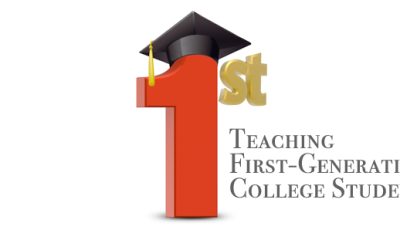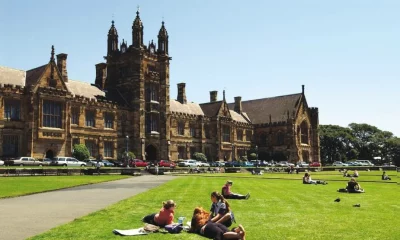Scholarships
Service Learning: Empowering College Students for Civic Engagement
Service learning is a transformative educational approach that equips college students with essential skills, real-world knowledge, and a mindset geared toward civic and social responsibilities. By bridging academic theory with practical application, students actively contribute to their communities while acquiring invaluable experience. This dynamic method of learning fosters a deep connection between higher education and societal impact, creating opportunities for personal growth and meaningful change.
What is Service Learning?
Service learning is an innovative blend of community service, academic achievement, skill development, and reflective practices. Unlike traditional volunteerism or internships, service learning integrates real-world service projects with classroom objectives, providing students with a comprehensive, hands-on learning experience.
This approach establishes a symbiotic relationship between educational institutions and local communities. Students dedicate their time and talents to address pressing community needs, while communities benefit from fresh perspectives and innovative solutions. By merging these elements, service learning becomes a powerful educational strategy that enhances learning outcomes and fosters social responsibility.
Key Characteristics of Service Learning
- Active Learning: Encourages students to engage directly with community challenges, allowing them to apply theoretical concepts in a practical context.
- Collaboration: Promotes teamwork and partnerships between universities, students, and community organizations.
- Reflective Practices: Provides opportunities for students to evaluate their experiences, enhancing personal and professional growth.
The Benefits of Service Learning
Service learning offers numerous benefits for students, educational institutions, and communities alike:
For Students
- Practical Experience: Students develop hands-on skills relevant to their future careers, such as problem-solving, communication, and teamwork.
- Enhanced Academic Understanding: By applying course material to real-world issues, students gain a deeper understanding of their academic disciplines.
- Civic Responsibility: Service learning instills a commitment to social justice and civic engagement, empowering students to become change-makers.
- Leadership Development: By tackling community challenges, students enhance their leadership and organizational skills.
For Communities
- Innovative Solutions: Communities benefit from the energy, creativity, and fresh perspectives students bring to social issues.
- Access to Resources: Local organizations gain access to university resources and student expertise, improving their capacity to address community needs.
- Strengthened Partnerships: Collaboration with educational institutions fosters long-term growth and mutual support.
For Educational Institutions
- Enhanced Reputation: Universities that emphasize community engagement build strong reputations as socially responsible institutions.
- Stronger Alumni Networks: Graduates who have participated in service learning are more likely to remain connected to their alma maters.
- Broader Impact: By addressing societal challenges, institutions demonstrate their commitment to public service.
Promoting Civic Engagement Through Service Learning
Service learning serves as a cornerstone for promoting civic engagement among college students. It provides them with opportunities to actively engage in their communities, confront social issues, and develop a lifelong commitment to making a difference.
How Service Learning Fosters Civic Engagement
- Building Empathy
Working closely with diverse populations allows students to understand different perspectives and cultivate empathy. This emotional connection encourages a sense of shared responsibility for societal well-being. - Strengthening Communities
Through collaborative projects, students help address critical community issues, such as education, healthcare access, environmental conservation, and poverty alleviation. - Inspiring Social Justice
Service learning often involves tackling systemic inequities. These experiences encourage students to challenge injustice and advocate for equitable solutions. - Bridging Gaps
By fostering partnerships between universities and communities, service learning builds trust and mutual respect. These collaborations create sustainable impacts that benefit all stakeholders.
Integrating Service Learning into College Education
To maximize the impact of service learning, colleges and universities can take several steps:
- Embed Service Learning in Curricula
Incorporating service learning into course requirements ensures that all students have access to these transformative experiences. - Partner with Community Organizations
Establishing strong relationships with local nonprofits, schools, and agencies provides students with diverse opportunities to contribute meaningfully. - Provide Training and Support
Offering workshops, mentorship, and resources equips students with the skills they need to succeed in service learning projects. - Encourage Reflection
Structured reflection activities, such as journaling, group discussions, and presentations, help students process their experiences and derive lasting insights. - Measure Impact
Regularly assessing the outcomes of service learning initiatives ensures continuous improvement and demonstrates the value of these programs.
Real-Life Examples of Service Learning
- Environmental Conservation Projects
Students studying environmental science may collaborate with local parks to restore habitats, reduce pollution, and promote sustainability. - Educational Outreach Programs
Education majors might partner with schools to provide tutoring, mentorship, or after-school enrichment programs for underserved children. - Healthcare Assistance
Nursing and medical students can volunteer at community clinics, gaining hands-on experience while improving access to healthcare. - Social Justice Advocacy
Students interested in law or social work may engage in initiatives that address homelessness, racial equity, or immigrant rights.
The Lasting Impact of Service Learning
Participating in service learning has far-reaching effects on students’ personal and professional lives. It prepares them to:
- Lead with Purpose: Graduates with service learning experience are more likely to pursue careers that align with their values.
- Navigate Diverse Environments: Exposure to different cultures and perspectives equips students with the adaptability needed in a globalized workforce.
- Champion Social Change: By understanding the root causes of social issues, students are better prepared to develop innovative, long-term solutions.
Conclusion
Service learning is a powerful tool for bridging the gap between academic knowledge and societal impact. By engaging in meaningful community service, students gain practical skills, deepen their understanding of course material, and cultivate a strong sense of civic responsibility.
For communities, service learning brings fresh perspectives, innovative ideas, and valuable resources. For educational institutions, it enhances reputations, strengthens alumni networks, and reinforces their commitment to public service.
Incorporating service learning into higher education is an investment in a brighter future—one where students, communities, and institutions work together to address pressing global challenges and create lasting, positive change.









